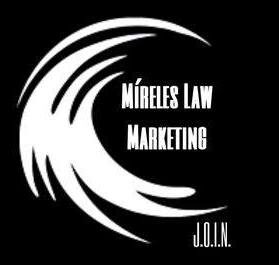Ideal client for lawyers: How to define it?
“What is an ideal client for lawyers?” It’s a great question that you should be asking yourself. If you know who your ideal customer is, then it will be easier to market to them and get them on board with your business. In this blog post, we will cover what defines an ideal customer, the steps needed to define one, and why defining your ideal client is so important.
What is an ideal customer?
To define ideal customer, you need to answer a few questions. An ideal customer is someone who wants what your business provides, has the money and willingness to pay for it, and is able to get in front of your message so that they can understand how the product or service solves their problem. In other words, ideal customers are those people on whom we have successfully crushed our target market segmentation!



How do I define my ideal customer?
To get a better idea of who your ideal customers are, and what they want and need, ask yourself a few more probing questions: What organization do you work for? Are current customers likely to repeat? How will they discover us (i.e., word-of-mouth marketing)? Once you have answered these questions, you can get a better idea of your ideal customer. Some ideal customer questions to ask yourself include the following:
- Where can I find them?
- What is their age?
- What is their purchasing power?
- What do they need from me/my product or service to become a customer?
- How much money and time will it take them to get my solution (i.e. buy, try)?
Once you have identified the ideal customers you want working with your company, we recommend breaking down their demographics into three categories: age range; gender; and income level. Below is an example of how this might look like when completed. You may add additional steps depending on what works best for your business! Ideal Customers – Age Range 25-35 years old – Gender Males & Females – Income Level $30,000-$50,000 per year
Why is it important to define your ideal client?
To successfully sell your product or service, you must have a clear idea of who your ideal customer is. If not defined correctly, you could waste some marketing dollars and efforts by targeting the wrong market. There is nothing worse than spending money on advertising that will never result in business opportunities. Defining an ideal customer also helps marketers avoid wasting time with potential customers who are less likely to buy their products. Once this has been clearly identified, companies can focus more energy on growing relationships with those people who are most likely to be interested in what they offer. Some of the key things that come from having an ideal definition include: clarity on where/how to spend marketing dollars, the ideal customer profile for sales reps to use when talking to prospects, and the ideal prospect list.
Knowing who your ideal customer is will help you understand what they are looking for and how to tailor your marketing messages to them. If you have the opportunity, invite them to a webinar or conference so you can talk to them directly about their problems. This will make it easier to serve them well.

5 steps to define your ideal client for lawyers
Once you’ve answered all these questions, it’s time to do some analysis! We want to define our ideal clients so we know what type of company they work for and how they heard about us (i.e. word-of-mouth marketing). Don’t forget also their pain points, desires, fears, etc. This way, we can create programs or content specifically tailored to them, which helps establish a relationship with potential customers and drive traffic to our website.
Individual definitions of an ideal customer may vary depending on the needs and objectives of the business. For example, a small business that sells products through its online store will have different ideal customers than a landscaping company specializing in outdoor maintenance services for commercial properties. While there is no one-size-fits-all definition of an ideal customer, here are some steps to help you get started:
1. What problem(s) do they need solved?
Once you know what kind of problems your ideal clients face, it'll be much easier to create marketing content around those challenges or pain points. It could even lead to developing new product offerings! If someone has been looking for a solution for months then there's a better chance that they're willing to buy from you than someone who just stumbled upon your site.
2. Where do ideal customers hang out online?
When you know where the ideal customer hangs out, it'll be easier to create content that appeals to them and get in front of more people interested in solving their problems. Are they on Facebook or LinkedIn all day long? Maybe even Pinterest! This is also a great way for sales reps to find ideal prospects because this will allow them to easily identify ideal clients' pain points when talking with potential leads in order to better position themselves as experts in their field.
3. Who are our ideal customers?
Who does your business serve best - individual consultants or companies? What size companies work best for you- small businesses or large corporations? Knowing these details will help determine ideal ideal customer profile.
4. What is the ideal company culture like?
This may seem a little bit weird to think about, but it's important! Not every business sells their products and services to everyone - even though they should (but that's another story for another day). For example, if you are selling high-end luxury items then your ideal customers will probably be wealthy individuals with large bank accounts who appreciate quality over quantity. They might not care about price point as much since this is something they can easily afford! However, If you're running an ecommerce site where everything on sale below $50 or so - people looking at luxury items aren't going to see anything that interests them which means they'll leave without buying anything.
5. What ideal ideal customers are saying?
Survey your ideal customer base to find out about their pain points, desires and fears. What are they looking for in a solution? What keeps them up at night - literally! Ask questions that will help you better understand what differentiates them from other people who might be interested in making the same purchase or investing in your services. A lot of businesses think creating content is all there is to marketing online but it's not everything! If you have no idea who you're writing your blog posts, case studies, ebooks etc . , then how do you know if anything resonates with anyone?! You can't just keep guessing on who'd to read these types of things and expect to attract ideal customers.
Let's quickly review why it is important to define your ideal customer:
- Save time and energy on marketing by creating content around topics, questions and interests ideal customers care about most;
- Improve sales conversion rates as well as overall business growth since the right people are reading your messaging online.
- Understanding what differentiates ideal customer from all other prospects is key for determining who should be targeted with specific messages – which means more leads, clients and revenue!
- Keep in mind that not everyone can afford or even want to invest in high priced luxury items so if a company isn’t targeting their ideal customer properly they’re going miss out on potential opportunities bringing them into the fold!

